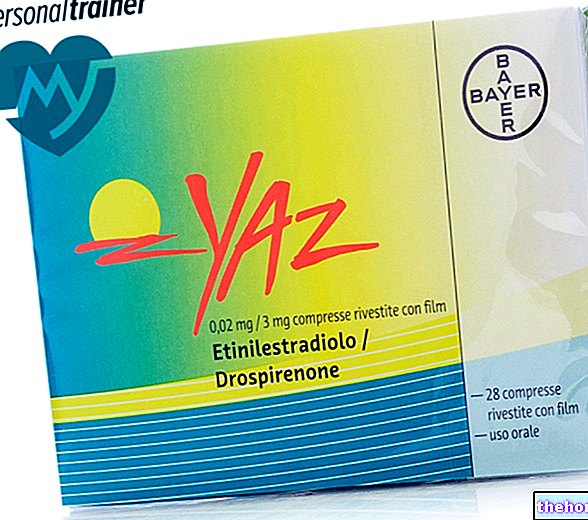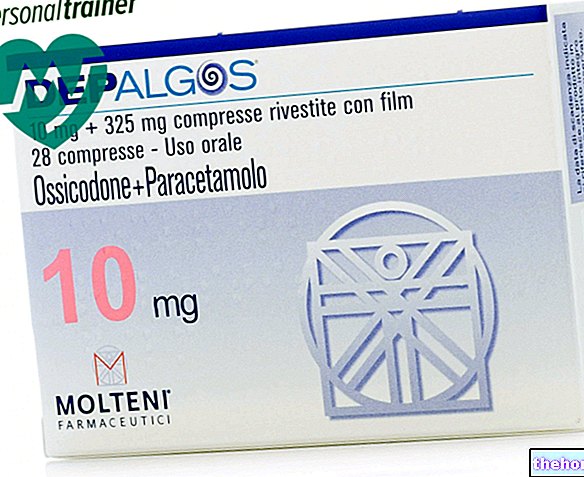Active ingredients: Paracetamol
Influmed effervescent tablets with Vitamin C
Influmed package inserts are available for pack sizes:- Influmed effervescent tablets with Vitamin C
- INFLUMED film-coated tablets
Why is Influmed used? What is it for?
INFLUMED contains paracetamol, ascorbic acid, caffeine, chlorphenamine maleate and isopropamide iodide. It is an analgesic, antipyretic and decongestant for oral use as it calms pain, lowers the temperature and reduces nasal congestion.
INFLUMED is used for the treatment of symptoms of flu, cold and related fever and pain. INFLUMED is also indicated for the treatment of inflammatory processes of the upper airways (nose and throat).
Talk to your doctor if you are using INFLUMED for more than 3 consecutive days.
Contraindications When Influmed should not be used
DO NOT use INFLUMED
- If you are allergic to the active substances, or to any of the other ingredients of this medicine (listed in section 6).
- If you suffer from hyperthyroidism (excessive activity of the thyroid gland).
- If you suffer from prostatic hypertrophy (enlarged prostate).
- If you suffer from glaucoma (increased pressure in the eyes).
- If you suffer from diseases of the lower respiratory tract (diseases of the bronchi and lungs), including asthma.
- If you suffer from urinary retention (diseases with urine retention).
- If you suffer from occlusions of the various tracts of the gastrointestinal tract (occlusion of the gastrointestinal tract) and urogenital (obstruction of the urinary and genital tracts).
- If you suffer from stomach ulcer.
- If your doctor has diagnosed you with glucose-6-phosphate dehydrogenase insufficiency.
- If you have severe haemolytic anemia.
- If you have severe hepatocellular insufficiency (severe liver disease).
- If you suffer from depression and are being treated with medicines belonging to the class of monoamine oxidase inhibitors (MAOIs) or if you have stopped taking these medicines for less than two weeks. Ask your doctor if the antidepressant drug you are using falls into this class of drugs.
- If you have phenylketonuria (a hereditary disease diagnosed at birth, with a build-up in the blood of a substance called phenylalanine), as this medicine contains aspartame, which is a source of phenylalanine.
- Do not give INFLUMED to children under 12 years of age.
- During pregnancy and breastfeeding (see "Pregnancy and breastfeeding" section).
Precautions for use What you need to know before taking Influmed
Talk to your doctor or pharmacist before taking INFLUMED
- If you have a "severe infection", as it may increase the risk of metabolic acidosis. Signs of metabolic acidosis can be:
- deep, rapid, difficult breathing
- nausea, vomiting
- loss of appetite. If you experience any combination of these symptoms, contact your doctor right away.
- If you suffer from kidney or liver failure (kidney and liver disease). Pre-existing liver disease increases the risk of acetaminophen-related liver damage
- If the medicine is to be given to the elderly or children, as agitation, nervousness, increased energy may occur in these patients.
- If you suffer from severe malnutrition, anorexia, bulimia or cachexia, low body mass index, excessive alcohol intake (3 or more alcoholic drinks per day), chronic alcoholism. These conditions can result in low glutathione stores.
Interactions Which drugs or foods may change the effect of Influmed
Tell your doctor or pharmacist if you are taking, have recently taken or might take any other medicines.
In particular, tell your doctor before taking INFLUMED if you are taking the following medications:
- anti-inflammatory drugs;
- warfarin and other drugs used to prevent blood clotting (coumarin derivatives); regular and prolonged use of paracetamol increases the risk of bleeding when taking these drugs, while the occasional intake of paracetamol has no significant effect on bleeding tendency;
- glutethimide, phenobarbital, carbamazepine, phenytoin (drugs used to treat epilepsy);
- rifampicin (antibiotic used to treat tuberculosis);
- cimetidine (medicine used to treat stomach ulcer);
- drugs that can cause sedation, such as anxiolytics (drugs to treat anxiety), sedatives and hypnotics (drugs that induce sleep), because increased sedative effects (sleepiness) may occur.
INFLUMED with food, drink and alcohol
Avoid excessive use of caffeinated foods or beverages (eg coffee, tea and some soft drinks) while taking this medicine.
Do not drink alcohol while being treated with INFLUMED, as it may make you feel more sleepy.
INFLUMED and laboratory tests
If you need to have blood tests to check your glucose or uric acid level, please tell your doctor that you are taking INFLUMED.
Warnings It is important to know that:
Take special care with INFLUMED
- If you suffer from epilepsy.
- If you have severe hypertension.
- If you suffer from severe cardiovascular problems.
- Severe renal insufficiency
- Taking too much acetaminophen can cause severe liver damage. Do not take other medicines that contain paracetamol at the same time as this can lead to an overdose: if paracetamol is taken in high doses or for a long time, it can cause "high risk liver disease (toxicity to the liver) and severely damage the kidneys and blood. Also, before combining any other medicines, contact your doctor (read the section "Other medicines and INFLUMED").
- Do not take INFLUMED together with other medicines that contain antihistamines, including other cough and cold preparations containing antihistamines.
Also consult your doctor if these problems have occurred in the past.
Pregnancy and breastfeeding
If you are pregnant or breast-feeding, think you may be pregnant or are planning to have a baby, ask your doctor or pharmacist for advice before taking this medicine.
Do not take INFLUMED during pregnancy and breastfeeding (see "DO NOT use INFLUMED" section).
Driving and using machines
This medicine can cause drowsiness, dizziness, blurred vision and motor and coordination disturbances, which can seriously interfere with the ability to drive and use machines.
INFLUMED contains sucrose, aspartame, sunset yellow E110, sodium
- INFLUMED contains sucrose: if you have been told by your doctor that you have an intolerance to some sugars, contact your doctor before taking this medicine.
- INFLUMED contains sunset yellow E110. It can cause allergic reactions.
- INFLUMED contains aspartame, a source of phenylalanine. It can be harmful to you if you have phenylketonuria (read the paragraph "DO NOT use INFLUMED").
- Each INFLUMED effervescent tablet contains 177.3 mg of sodium. To be taken into consideration in people with reduced kidney function or who follow a low sodium diet.
Dose, Method and Time of Administration How to use Influmed: Posology
Always take this medicine exactly as described in this leaflet or as directed by your doctor or pharmacist. If in doubt, consult your doctor or pharmacist. Always use the lowest effective dose to relieve symptoms.
How many
Warning: do not exceed the recommended dose without your doctor's advice.
Recommended dose
Adults and children aged 12 and over: 1 effervescent tablet every 12 hours.
Elderly patients: 1 effervescent tablet per day.
Like
Dissolve the effervescent tablet with half a glass of plain water.
Administer orally only.
When and for how long
It is advisable to take the product on a full stomach.
Do not use INFLUMED for more than 3 consecutive days without consulting your doctor.
Also consult your doctor if the disorder occurs repeatedly or if you notice any recent changes in its characteristics.
Overdose What to do if you have taken too much Influmed
If you have taken more INFLUMED than you should, stop treatment and contact your doctor or the nearest hospital straight away even if you have no symptoms of overdose.
The paracetamol contained in INFLUMED, if taken in excessive dose, can cause severe liver damage, which can lead to transplantation or death.
High doses of caffeine can cause stomach pain, vomiting, increased urine output, heart rhythm disturbances (tachycardia or arrhythmia), insomnia, restlessness, excitement, agitation, nervousness, tremors and convulsions.
An excessive dose of chlorphenamine can cause effects similar to those listed in the section "Possible side effects", but also paradoxical excitement, mental disorders, convulsions, shortness of breath, muscle twitching and collapse (sudden sharp drop in blood pressure), with possible disturbances of the heart rhythm (arrhythmias).
High doses of vitamin C (greater than 3000 mg, equivalent to the content of 6 tablets) can cause transient diarrhea and other gastrointestinal effects, such as nausea and abdominal discomfort, and possible formation of kidney stones.
If you have any further questions on the use of INFLUMED, ask your doctor or pharmacist.
Side Effects What are the side effects of Influmed
Like all medicines, INFLUMED can cause side effects, although not everybody gets them.
Stop taking the drug and tell your doctor right away if you experience these rare reactions:
- allergic reactions such as skin rash or itching, possibly with difficulty in breathing or swelling of the lips, tongue, throat or face or an episode of collapse (sharp and sudden drop in blood pressure accompanied by loss of strength, palpitations, sweating)
- rash with exfoliation, or mouth ulceration
- breathing difficulties in people who have previously experienced similar episodes after taking aspirin or non-steroidal anti-inflammatory drugs
- unexplained bruising or bleeding
- difficulty urinating.
Other side effects that can occur with the use of INFLUMED are:
Blood
Decreases, even severe, in blood cells: platelets and white or red blood cells (thrombocytopenia, leukopenia, anemia, agranulocytosis).
Eating disorders
Lack of appetite (anorexia).
Nervous system
Nervousness, confusion, excitement, irritability, nightmares.
Sedation, sleepiness, insomnia, attention disturbance, coordination difficulties, dizziness, headache.
Eyes
Disturbances in visual function, blurred vision.
Heart and circulation
Changes in the rhythm of the heart (palpitations, tachycardia, arrhythmias).
Low blood pressure, flushing.
Bronchi and lungs
Thickening of bronchial secretions.
Stomach and intestines
Nausea, dry mouth, vomiting, abdominal pain, diarrhea, indigestion.
Liver
Liver disorders, such as increased liver enzymes (transaminases) in laboratory tests (changes in liver function), hepatitis.
Skin
Hives, sensitivity to sunlight. Very rare cases of severe skin reactions have been reported, such as erythema multiforme, Stevens Johnson syndrome, epidermal necrolysis
Muscles
Muscle twitching, muscle weakness.
Kidneys and urinary tract
Disorders affecting the urinary tract or kidneys, such as abnormal laboratory tests (acute kidney failure), kidney inflammation (interstitial nephritis), blood in the urine.
General ailments
Fatigue, chest tightness.
When the recommended dosage of INFLUMED is associated with dietary caffeine intake, increased potential side effects associated with caffeine may occur, such as insomnia, agitation, anxiety, irritability, headache, gastrointestinal upset and palpitations ( read the section "INFLUMED with food, drink and alcohol").
Reporting of side effects
If you get any side effects, talk to your doctor or pharmacist. This includes any possible side effects not listed in this leaflet. You can also report side effects directly via the national reporting system at www.agenziafarmaco.gov.it/it/responsabili. By reporting side effects you can help provide more information on the safety of this medicine.
Compliance with the instructions contained in the package leaflet reduces the risk of undesirable effects.
Expiry and Retention
Keep this medicine out of the sight and reach of children.
This medicine does not require any special storage conditions.
Do not use this medicine after the expiry date which is stated on the carton after EXP. The expiry date refers to the last day of that month.
The expiry date refers to the product in intact packaging, correctly stored.
Do not throw any medicines via wastewater or household waste. Ask your pharmacist how to throw away medicines you no longer use. This will help protect the environment.
It is important to always have the information about the medicine available, so keep both the box and the package leaflet.
Deadline "> Other information
What INFLUMED contains
- The active ingredients are paracetamol, ascorbic acid, caffeine, chlorphenamine maleate and isopropamide iodide. One effervescent tablet contains: paracetamol 500 mg, ascorbic acid 500 mg, caffeine 25 mg, chlorphenamine maleate 8 mg, isopropamide iodide 0.2 mg.
- The other ingredients are: tartaric acid, sodium carbonate glycine, orange / lemon flavor, sodium saccharin, aspartame, sodium benzoate, sunset yellow (E110), sodium lauryl sulfate, sucrose.
Description of what INFLUMED looks like and contents of the pack
INFLUMED comes in the form of effervescent tablets. The contents of the package are 12 effervescent tablets in strips.
Each tablet weighs 2600 mg.
Source Package Leaflet: AIFA (Italian Medicines Agency). Content published in January 2016. The information present may not be up-to-date.
To have access to the most up-to-date version, it is advisable to access the AIFA (Italian Medicines Agency) website. Disclaimer and useful information.
01.0 NAME OF THE MEDICINAL PRODUCT -
INFLUMED
02.0 QUALITATIVE AND QUANTITATIVE COMPOSITION -
INFLUMED film-coated tablets
Each film-coated tablet contains:
Active principles:
paracetamol 500 mg, caffeine 25 mg, chlorphenamine maleate 8 mg, isopropamide iodide 0.2 mg.
INFLUMED effervescent tablets with Vitamin C
Each effervescent tablet contains:
Active principles:
paracetamol 500 mg, ascorbic acid 500 mg, caffeine 25 mg, chlorphenamine maleate 8 mg, isopropamide iodide 0.2 mg.
For the full list of excipients see section 6.1
03.0 PHARMACEUTICAL FORM -
Film-coated tablets.
Effervescent tablets.
04.0 CLINICAL INFORMATION -
04.1 Therapeutic indications -
Symptomatic treatment of flu, cold and related feverish and painful states. Treatment of acute and chronic inflammatory processes of the upper airways.
04.2 Posology and method of administration -
Adults and children aged 12 and over:
Film-coated tablets: 1 tablet to be swallowed with half a glass of water, every 12 hours.
Effervescent tablets: 1 effervescent tablet to be dissolved in half a glass of still water every 12 hours.
Senior citizens:
Film-coated tablets: 1 tablet to be swallowed with half a glass of water per day.
Effervescent tablets: 1 effervescent tablet to be dissolved in half a glass of still water per day.
It is advisable to take the product on a full stomach.
Do not administer for more than 3 consecutive days without consulting your doctor.
Do not exceed the recommended dose.
04.3 Contraindications -
Hypersensitivity to the active substances, other closely related substances or to any of the excipients. Hyperthyroidism; prostatic hypertrophy and glaucoma.
The product is contraindicated in affections of the lower respiratory tract, including asthma, in urinary retention syndromes, in stenosis of the various tracts of the gastrointestinal and urogenital tract, in stenosing gastric ulcer.
Paracetamol-based products are contraindicated in patients with manifest insufficiency of glucose-6-phosphate dehydrogenase and in those suffering from severe haemolytic anemia.
Severe hepatocellular insufficiency.
Contraindicated in patients on concomitant treatment with monoamine oxidase inhibitors (MAOIs) and in the 2 weeks following such treatment, as the anticholinergic effects of chlorphenamine are enhanced by monoamine oxidase inhibitors.
Due to the presence of aspartame, a source of phenylalanine, INFLUMED effervescent tablets with vitamin C are contraindicated in patients with phenylketonuria.
Do not administer to children under 12 years of age.
Pregnancy and lactation (see chapter 4.6).
04.4 Special warnings and appropriate precautions for use -
Patients with renal or hepatic insufficiency should consult their doctor before taking this medicine.
Administer with caution in patients with glutathione-depleted states, such as sepsis, since the use of paracetamol may increase the risk of metabolic acidosis.
During treatment with paracetamol-based products, before taking any other drug, check that it does not contain the same active ingredient, as serious adverse reactions can occur if paracetamol is taken in high doses.
Instruct the patient to contact the physician before associating any other medication. See also under "Interactions with other medicinal products and other forms of interaction".
High or prolonged doses of paracetamol can cause high-risk liver disease and even severe changes in the kidney and blood.
Chlorphenamine, like other drugs with anticholinergic properties, should be administered with caution in case of epilepsy, severe hypertension, severe cardiovascular disorders, increased intraocular pressure (including glaucoma), prostatic hypertrophy, severe hepatic insufficiency, severe renal insufficiency, bronchitis, bronchiectasis and bronchial asthma.
The anticholinergic properties of chlorphenamine can cause drowsiness, dizziness, blurred vision and psychomotor impairment in some patients, which can seriously interfere with the ability to drive and use machines.
Chlorphenamine may enhance the effects of alcohol, therefore concomitant use should be avoided.
The concomitant use of drugs that can cause sedation, such as anxiolytics and hypnotics, can cause increased sedative effects, therefore it is necessary to consult your doctor before taking chlorphenamine at the same time as these drugs.
Particular caution should be exercised in determining the dose in elderly and pediatric subjects in consideration of the greater likelihood that they exhibit anticholinergic neurological effects and paradoxical excitement (increased energy, agitation, nervousness).
The drug should not be used in conjunction with products that contain antihistamines, including other cough and cold preparations containing antihistamines.
Excessive use of foods containing caffeine (eg coffee, tea and some soft drinks) should be avoided while taking the drug.
INFLUMED film-coated tablets contain lactose. Patients with rare hereditary problems of galactose intolerance, the Lapp lactase deficiency syndrome or glucose-galactose malabsorption syndrome should not take INFLUMED.
INFLUMED effervescent tablets with vitamin C contain sucrose, this should be taken into account in case of diabetes or low-calorie diets. Patients with rare hereditary problems of fructose intolerance, glucose-galactose malabsorption syndrome or sucrase-isomaltase insufficiency should not take INFLUMED with vitamin C.
The sunset yellow excipient E110, contained in INFLUMED with vitamin C effervescent tablets, can cause allergic reactions.
Each INFLUMED effervescent tablet with vitamin C contains 177.3 mg of sodium, this should be taken into account in patients on a low sodium diet.
If symptoms persist, consult a doctor.
04.5 Interactions with other medicinal products and other forms of interaction -
Use with extreme caution and under strict control during chronic treatment with drugs that can determine the induction of hepatic monooxygenases or in case of exposure to substances that can have this effect (for example rifampicin, cimetidine, antiepileptics such as glutethimide, phenobarbital, carbamazepine) .
The administration of paracetamol can interfere with the determination of uric acid (by the method of phosphotungstic acid) and with that of blood glucose (by the method of glucose-oxidase-peroxidase).
The anticoagulant effect of warfarin and other coumarin derivatives can be enhanced by the regular and prolonged use of paracetamol, with an increased risk of bleeding; occasional use has no significant effect.
The use of the product is not recommended if the patient is being treated with anti-inflammatory drugs.
The concomitant use of chlorphenamine and hypnotic, anxiolytic and sedative drugs may potentiate drowsiness. The concomitant use of alcohol can have similar effects.
Chlorphenamine inhibits the metabolism of phenytoin with consequent possible manifestation of toxic effects from phenytoin.
The anticholinergic effects of chlorphenamine are enhanced by monoamine oxidase inhibitors (see "Contraindications").
04.6 Pregnancy and breastfeeding -
INFLUMED should not be used during pregnancy and breastfeeding.
04.7 Effects on ability to drive and use machines -
The anticholinergic properties of chlorphenamine can cause drowsiness, dizziness, blurred vision and psychomotor impairment in some patients, which can seriously interfere with the ability to drive and use machines.
04.8 Undesirable effects -
Disorders of the blood and lymphatic system
Thrombocytopenia, leukopenia, anemia, agranulocytosis
Disorders of the immune system
Hypersensitivity reactions such as angioedema, larynx edema, anaphylactic shock
Metabolism and nutrition disorders
Anorexia
Psychiatric disorders
Nervousness, confusion, excitement, irritability, nightmares
Nervous system disorders
Sedation, somnolence, insomnia, attention disturbance, abnormal coordination, dizziness, headache
Eye disorders
Disturbances in visual function, blurred vision
Cardiac pathologies
Palpitations, tachycardia, arrhythmias
Vascular pathologies
Hypotension, flushing
Respiratory, thoracic and mediastinal disorders
Bronchospasm in patients sensitive to aspirin and other non-steroidal anti-inflammatory drugs, thickening of bronchial secretions
Gastrointestinal disorders
Nausea, dry mouth, vomiting, abdominal pain, diarrhea, dyspepsia
Hepatobiliary disorders
Changes in liver function and hepatitis
Skin and subcutaneous tissue disorders
Exfoliative dermatitis, skin rash, urticaria, photosensitivity.
Very rare cases of severe skin reactions have been reported, such as erythema multiforme, Stevens Johnson syndrome, epidermal necrolysis
Musculoskeletal and connective tissue disorders
Muscle twitching, muscle weakness
Renal and urinary disorders
Acute renal failure, interstitial nephritis, haematuria, anuria, urinary retention
General disorders and administration site conditions
Fatigue, chest tightness
When the recommended dosage of INFLUMED is associated with dietary caffeine intake, increased potential side effects associated with caffeine may occur, such as insomnia, agitation, anxiety, irritability, headache, gastrointestinal upset and palpitations.
Reporting of suspected adverse reactions.
Reporting of suspected adverse reactions occurring after authorization of the medicinal product is important as it allows continuous monitoring of the benefit / risk balance of the medicinal product. Healthcare professionals are asked to report any suspected adverse reactions via the national reporting system. "address www.agenziafarmaco.gov.it/it/responsabili.
04.9 Overdose -
In case of overdose, paracetamol can cause liver failure and hepatic cytolysis which can evolve towards massive and irreversible necrosis.
In the event of an overdose, immediate medical treatment is still required, even in the absence of symptoms. Administration of N-acetylcysteine or methionine may be required.
High doses of caffeine can cause epigastric pain, vomiting, diuresis, tachycardia or cardiac arrhythmia, central nervous system stimulation (insomnia, restlessness, excitement, agitation, nervousness, tremors and convulsions).
For INFLUMED with vitamin C it is reported that high doses of ascorbic acid (> 3000 mg) can cause transient osmotic diarrhea and gastrointestinal effects, such as nausea and abdominal discomfort, and hyperoxaluria, with possible formation of calcium oxalate kidney stones.
Chlorphenamine overdose may result in effects similar to those listed in the "Undesirable effects" section. Additional symptoms may include paradoxical arousal, toxic psychosis, seizures, apnea, dystonic reactions, and cardiovascular collapse which can include arrhythmias.
Establish supportive treatment for specific symptoms. Convulsions and high CNS stimulation can be treated with parenteral diazepam.
It should be noted that the manifestation of significant clinical signs due to the overdose of the single active ingredients contained in INFLUMED is probably associated with the onset of hepatic toxicity from paracetamol.
05.0 PHARMACOLOGICAL PROPERTIES -
05.1 "Pharmacodynamic properties -
Pharmacotherapeutic group: paracetamol, combinations excluding psycholeptics.
ATC code N02BE51.
INFLUMED film-coated tablets and INFLUMED with vitamin C effervescent tablets are preparations for the symptomatic therapy of influenza, in which paracetamol is associated with chlorphenamine maleate, isopropamide iodide and caffeine. INFLUMED with Vitamin C also contains Vitamin C.
Paracetamol has an analgesic and antipyretic action: its mechanism of action seems to be linked to the ability to inhibit the biosynthesis of prostaglandins, in particular at the level of the CNS.
The lack of inhibition of peripheral prostaglandins confers important pharmacological properties such as the maintenance of the protective activity of prostaglandins in the gastrointestinal tract.
Paracetamol is, therefore, particularly suitable for patients with previous pathologies or patients taking concomitantly other medicines for which it is desirable to avoid the inhibition of peripheral prostaglandins (such as in the case of gastrointestinal bleeding or in the elderly).
Caffeine acts as an analgesic adjuvant, which increases the efficacy of paracetamol.
Chlorphenamine maleate is a powerful antihistamine (H1-antagonist). Antihistamines decrease or reduce the action of histamine by competitively and reversibly blocking the histamine H1 receptors present in the tissues. Chlorphenamine also has an anticholinergic action. Antihistamines work by preventing the release of histamine, prostaglandins and leukotrienes, and have been shown to prevent the migration of inflammatory mediators. The actions of chlorphenamine include inhibiting the effects of histamine on smooth muscle. and capillary permeability, with consequent reduction of edema and wheals in hypersensitivity reactions such as allergy and anaphylaxis.
Ascorbic acid (vitamin C) is an essential component of the human diet. It is included in the formulation of INFLUMED with vitamin C to supplement the intake of vitamin C that occurs with the diet. This is particularly important in the early stages of acute viral infections, such as the common cold, when vitamin C deficiency can occur. and lack of appetite.
Isopropamide iodide has bronchorelaxant and secretion reducing properties.
05.2 "Pharmacokinetic properties -
Paracetamol is rapidly and almost completely absorbed in the gastrointestinal tract. The percentage of paracetamol bound to plasma proteins at therapeutic concentrations is minimal. It is metabolized in the liver and excreted in the urine mainly as glucuronide and sulfate; less than 5% is excreted unchanged.
Caffeine is rapidly absorbed in the gastrointestinal tract and widely distributed throughout the body. It is almost completely metabolised in the liver by oxidation and demethylation to various xanthine derivatives, which are excreted in the urine. The plasma half-life averages approximately 4.9 hours.
Orally, chlorphenamine maleate is readily absorbed from the gastrointestinal tract. The effects occur in 30 minutes, with a maximum between the first and second hours and last 4 - 6 hours. The plasma half-life is 12 - 15 hours.
Chlorphenamine is metabolised to monodesmethyl and didesmethyl derivatives. Approximately 22% of the oral dose is excreted unchanged in the urine. Only trace amounts were found in the faeces.
The ascorbic acid, present in INFLUMED with vitamin C, is rapidly absorbed in the gastrointestinal tract and widely distributed throughout the body. It binds 25% to plasma proteins. The ascorbic acid in excess of what is needed is eliminated in the urine in the form of metabolites.
The pharmacokinetics of isopropamide iodide, absorbed orally, is such as to guarantee a continuity of its pharmacological action for 10-12 hours.
05.3 Preclinical safety data -
The internal preclinical safety data and those available in the literature relating to the active ingredients present in INFLUMED, do not highlight relevant information for the indications and recommended dosages.
06.0 PHARMACEUTICAL INFORMATION -
06.1 Excipients -
INFLUMED film-coated tablets:
Excipients: sodium starch glycolate, sodium saccharin, hypromellose, microcrystalline cellulose, lactose, colloidal silica, talc, magnesium stearate, macrogol 6000, macrogol 4000, titanium dioxide.
INFLUMED with Vitamin C effervescent tablets:
Excipients: tartaric acid, glycine sodium carbonate, orange / lemon flavor, sodium saccharin, aspartame, sodium benzoate, sunset yellow (E110), sodium lauryl sulfate, sucrose.
06.2 Incompatibility "-
Not relevant.
06.3 Period of validity "-
3 years for film-coated tablets.
2 years for effervescent tablets with vitamin C.
06.4 Special precautions for storage -
This medicine does not require any special storage conditions.
06.5 Nature of the immediate packaging and contents of the package -
INFLUMED: opaque blister of 12 film-coated tablets.
INFLUMED with vitamin C: aluminum / polythene strips of 12 effervescent tablets.
06.6 Instructions for use and handling -
No special instructions.
07.0 HOLDER OF THE "MARKETING AUTHORIZATION" -
IODOSAN S.p.A. - Via Zambeletti - 20021 Baranzate (MI).
08.0 MARKETING AUTHORIZATION NUMBER -
INFLUMED film-coated tablets: A.I.C. n. 029238019.
INFLUMED effervescent tablets with vitamin C: A.I.C. n. 029238021.
09.0 DATE OF FIRST AUTHORIZATION OR RENEWAL OF THE AUTHORIZATION -
First authorization: Decree n. 489 of 22.10.1998 - Official Journal no. 260 of 06.11.1998
Last renewal: November 2008
10.0 DATE OF REVISION OF THE TEXT -
June 2015




























